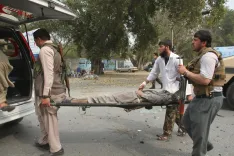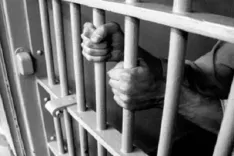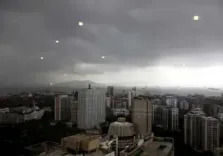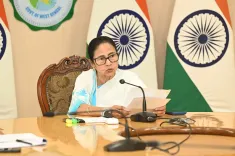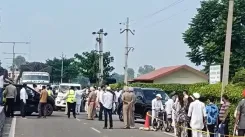Has the Army Taken Control in Nepal to Discuss with Gen Z Leaders?
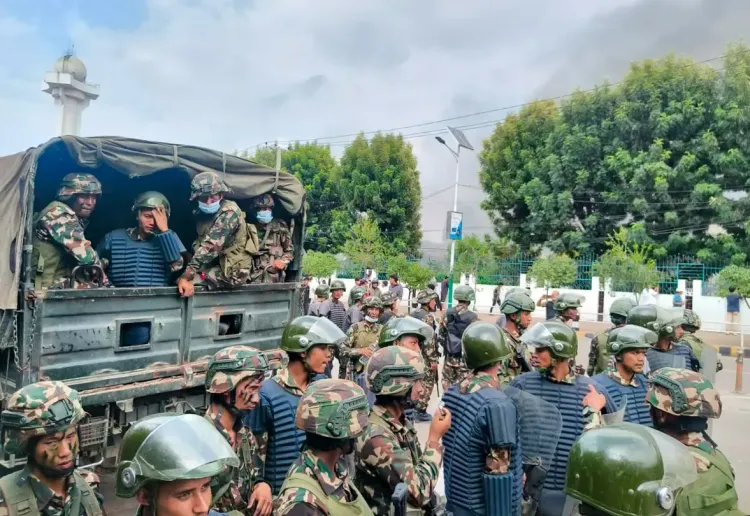
Synopsis
Key Takeaways
- The Nepali Army has taken charge of maintaining law and order.
- A nationwide curfew has been declared due to unrest.
- Essential services are allowed to operate during the curfew.
- Vandalism and related activities will be treated as criminal offenses.
- Engagement with Gen Z leaders is sought for political dialogue.
Kathmandu, Sept 10 (NationPress) The Nepali Army has taken on the critical role of maintaining law and order, as the security organization declared a nationwide curfew on Wednesday, which will last until Thursday morning.
This action was prompted by the ongoing threats of unrest across the nation.
According to the Local Administration Act of 1971, the District Administration Office, a civilian body under the Home Ministry, had been responsible for enforcing the curfew until now.
In light of the chaotic situation during Wednesday's Gen Z protests, which led to extensive vandalism and property destruction, the Nepal Army announced on Wednesday night that it would take the lead in preserving law and order.
The security officials stated that the prohibitory order that was enacted on Wednesday will remain in effect nationwide until 6 a.m. the following day.
Extensions to this curfew will be assessed based on the situation's progression.
"It has been noted that various anarchist groups and individuals have infiltrated the protests, engaging in activities such as vandalism, arson, looting, and targeted attacks on individuals under the guise of the movement. There is a potential for further incidents of this nature," the Army clarified in a statement on Wednesday.
Army personnel were seen on the streets making announcements regarding the curfew's enforcement.
According to the Army's statement, essential service vehicles—including ambulances, hearses, fire brigades, health worker transport, and sanitation vehicles—will be permitted to operate during the curfew. Authorities have requested that these services coordinate with nearby security personnel to ensure smooth operations.
The Army also cautioned that any acts of vandalism, looting, arson, or attacks on individuals and property carried out under the pretense of demonstrations will be treated as criminal offenses, with stringent actions to be taken by security forces.
On Wednesday night, the Nepal Army issued a notice indicating that it would be taking charge of the nation’s law and order starting at 10 p.m. on Tuesday, subsequently announcing the curfew order on Wednesday.
Additionally, local media reports indicate that the Army has requested a list of names from Gen Z leaders for discussions about the nation’s political future following the resignation of Prime Minister KP Sharma Oli.
In a social media update, the Army reported that 27 individuals allegedly involved in destructive and disorderly activities—such as looting and arson—had been arrested by Wednesday morning.
Furthermore, three fire engines have been deployed to combat arson incidents.
Local media reported that the fires at the Singh Durbar building, the primary administrative center of the Nepalese government, and the Supreme Court building continued to blaze until Wednesday morning.
Firefighters were dispatched to the Supreme Court on Wednesday morning to extinguish the flames.



